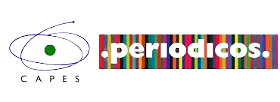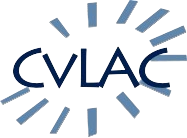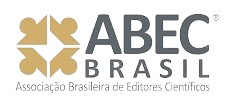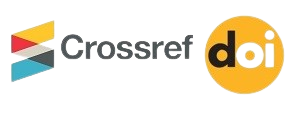Submissions
Author Guidelines
The publication standards are included in the Template for works, linked on this site.
The first submitted version should NOT contain author identification in the body of the work. After the approval of the article, the insertion of the authors' names in the final model to be published in the journal will be requested.
However, all authors, as well as their order, must be entered in the metadata (as well as information such as institution, biography...) at the time of manuscript submission, as after acceptance, their data will no longer be changed.
The allowed number of authors is up to four.
Accepted work modalities:
Scientific texts that present original, theoretical or empirical contributions related to Science Education and its various interfaces as outlined in the scope of the journal will be accepted for possible publication.
The articles submitted for publication must be unpublished and cannot be under review in another vehicle. Communications made at congresses can be submitted as long as their scope is expanded, avoiding repetitions of complete works published in event proceedings.
RIS publishes mainly articles in Portuguese, but manuscripts submitted in Spanish or English may be published without translation when submitted by foreign authors.
Theoretical articles should introduce new developments in the field of knowledge they explore and bring conclusions and implications for research and educational practice in the field of Science teaching. Empirical articles (with production of results) must present results that, examined with an appropriate theoretical framework, can result in new knowledge or in developments of its application in contexts different from those known.
The authors are responsible for the originality and truthfulness of the content presented in the work. The linguistic and bibliographic review must be done before submitting the manuscript. Furthermore, if the work is approved, the final version must be accompanied by a statement of textual correction. Authors must indicate whether the research is funded and if there is a conflict of interest.
The Editorial Committee may request the submission of authorization from the Research Ethics Committee, when deemed necessary. We also request that the ABNT normalization standards be observed. If a writing problem is identified in the submitted text, the Editorial Committee reserves the right to request a revision of the same, with costs borne by the authors. Texts of 5 to 20 pages are expected depending on the section and in the following formats for publication:
Articles: Unpublished text originating from scientific research in the area or sub-areas and themes within the scope of RIS. The results must be original and intended exclusively for this journal, not having been submitted or published in full in any other medium, and may have originated from academic works and works presented at scientific conferences, but never be (totally or partially) the same as these. In other words, the article must clearly be an expansion in relation to the initial work. Being the text with 15 to 20 pages.
Experience Reports: Section open for reports of experiences from professionals working in Science Education and its interfaces, both in formal and non-formal education. These are works resulting from educational investigations and reflections on significant, diverse, and interesting aspects of the field of teaching practices, that is, Teaching and Learning Sciences. Being the text with 8 to 12 pages.
Dissertations and Theses: Open section for extended abstracts of theses and dissertations by newly graduated researchers, recently completed works that are in the area of Science Education and its interfaces. These are works resulting from educational investigations and reflections on significant, diverse, and interesting aspects in the field of research in Education, Science Education. Being the text with up to 15 pages.
Didactic proposals: Section dedicated to the presentation of educational proposals, didactic strategies, teaching processes originating from research activities by teachers in schools, teaching programs, or at the University in the area of Science Teaching. Being the text with 8 to 15 pages.
Reviews: Section reserved for critical analysis of works by authors related to the theme of Science Education. Being the text with 3 to 5 pages.
Biographies: Section dedicated to the biographies of authors in the field of Education and Teaching, as well as researchers in the field of Science Teaching. Being the text with up to 10 pages.
Template for works: Click here
Criteria adopted for selection/evaluation of submitted articles (peer review):
Criteria for judging the works and Guidelines for Evaluators:
The reviewers should guide their opinions on the manuscripts under review by the following guidelines:
-
The text is written objectively, in the standards of the language and organized;
-
The text has a structure compatible with a scientific document, framed in the appropriate section;
-
The manuscript is easy to read and understand;
-
The text has theoretical and conceptual basis;
-
The literature reflects a review of the state of the art;
-
The objectives and methodological procedures are clear;
-
The methodology is theoretically based and appropriate to the purposes of the study;
-
The results are adequately analyzed with theoretical interleaving;
-
The conclusions are compatible with the objectives, methodology, and results presented in the text;
-
The text presents significant contributions to the field of knowledge;
-
The manuscript has originality.
If the editorial decision indicates the need for reformulations and substantial revision indicating a new submission, the work enters the second round of evaluation, which should preferably be done by the same reviewers who participated in the first round.
In cases where not all criteria apply, such as in: reviews, biographies, theoretical works, some experience reports, didactic proposals, some of the criteria will be disregarded in the evaluation. Based on the criteria, each evaluator will indicate whether the submitted work should be Accepted, Accepted with minor revisions needed; Accepted with major changes in form, content, and corrections needing to be resubmitted, or Rejected.
Peer review:
RIS reserves the right to submit all originals preliminarily to the Editorial Board, which examines the suitability of the work to its editorial line.
The first author will be notified of the receipt of the manuscript within two weeks after submission. Subsequently, the articles are forwarded for confidential peer review (double blind peer-review). The manuscript will be submitted, without identifying the authors, to two referees who are researchers and specialists in the field. They will be invited from the initial list of Reviewers and Referees, which will be expanded due to new submissions. In the event of a discrepancy between the opinions, a third arbitrator will be consulted. A notification regarding the final opinion of the manuscript should be sent to the authors. The referees are all active doctors in the field of education/science education/teaching and designated according to the criteria: 1. Have skills related to the submitted article; 2. Not having institutional or research group ties with the submission authors.
The editors commit to monitoring the process to ensure the speed and quality of the reviews. In case of an opinion conditioned to modifications in the text, the author will have 30 days to submit the modifications, otherwise the manuscript will be filed. The average time between submission and approval will be up to 12 months. The approved works make up the numbers of the Journal prioritizing the date of submission and approval and also the regional distribution of authors. The final texts are typeset and reviewed (language, spelling, and technical standards) and submitted to the authors for final verification before being published on the journal's portal. Access to the journal is full and free on the UFFS periodicals portal: https://periodicos.uffs.edu.br/.
Peer review will ensure an opinion to be formulated by the editors that will reach the authors. The Editorial Board and the Scientific Council have the final authority to decide on the convenience or not of the publication, if necessary and at the request of the editors.
Submission Preparation Checklist
All submissions must meet the following requirements.
- The contribution is original and unpublished, and is not being evaluated for publication by another journal; otherwise, it should be justified in "Comments to the editor."
- The submission file is in Microsoft Word, OpenOffice, or RTF format.
- URLs for the references were provided when possible.
- The text is in 1.5 cm spacing; uses a 12-point font; employs italics instead of underlining (except in URLs); figures and tables are embedded in the text, not at the end of the document as attachments.
- The text follows the style standards and bibliographic requirements described in Guidelines for Authors, on the About the Journal page.
- Template for papers: https://periodicos.uffs.edu.br/index.php/RIS/libraryFiles/downloadPublic/72
Artigos
Política padrão de seção
Privacy Statement
The names and email addresses entered in this journal site will be used exclusively for the stated purposes of this journal and will not be made available for any other purpose or to any other party.





















